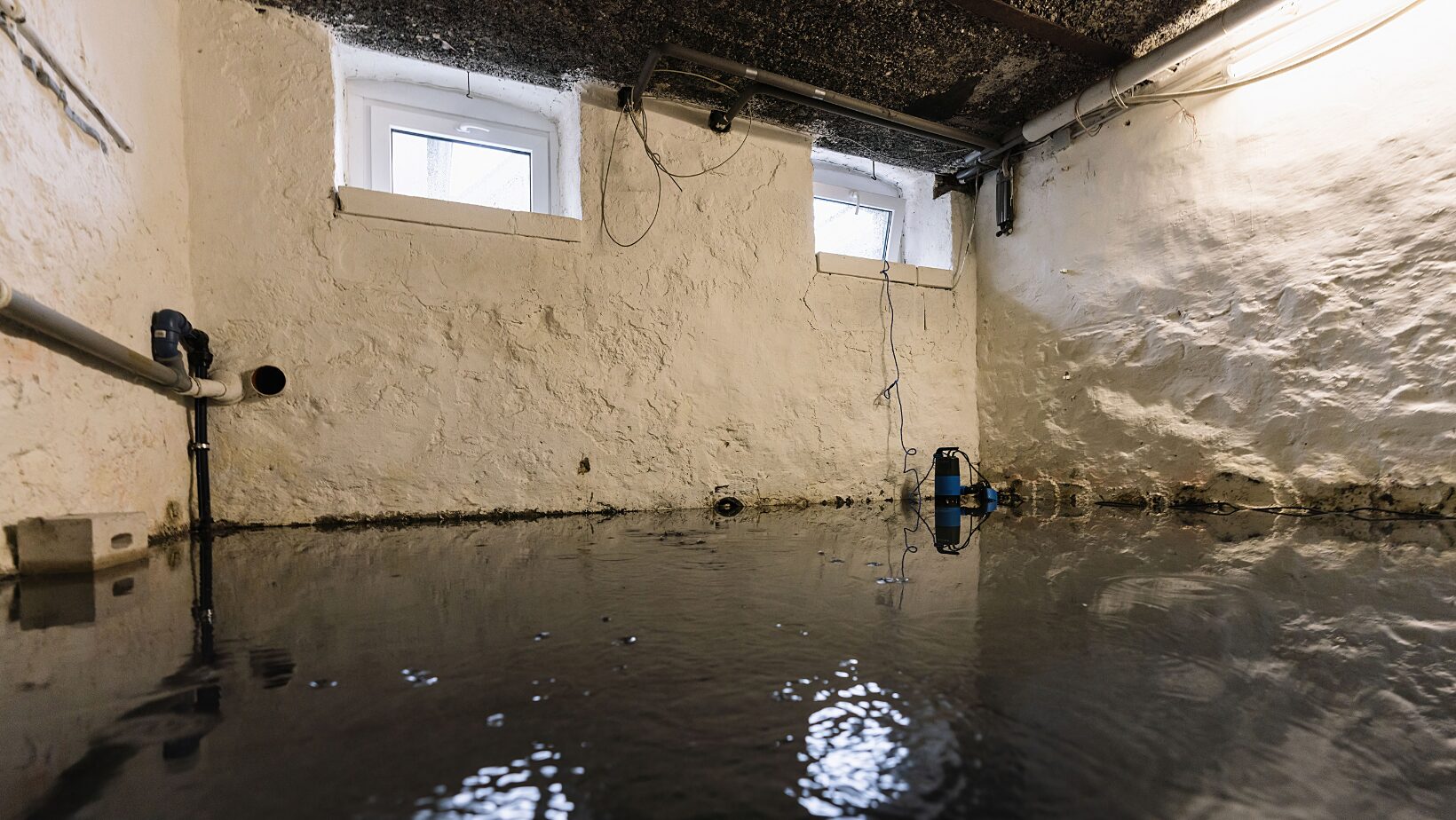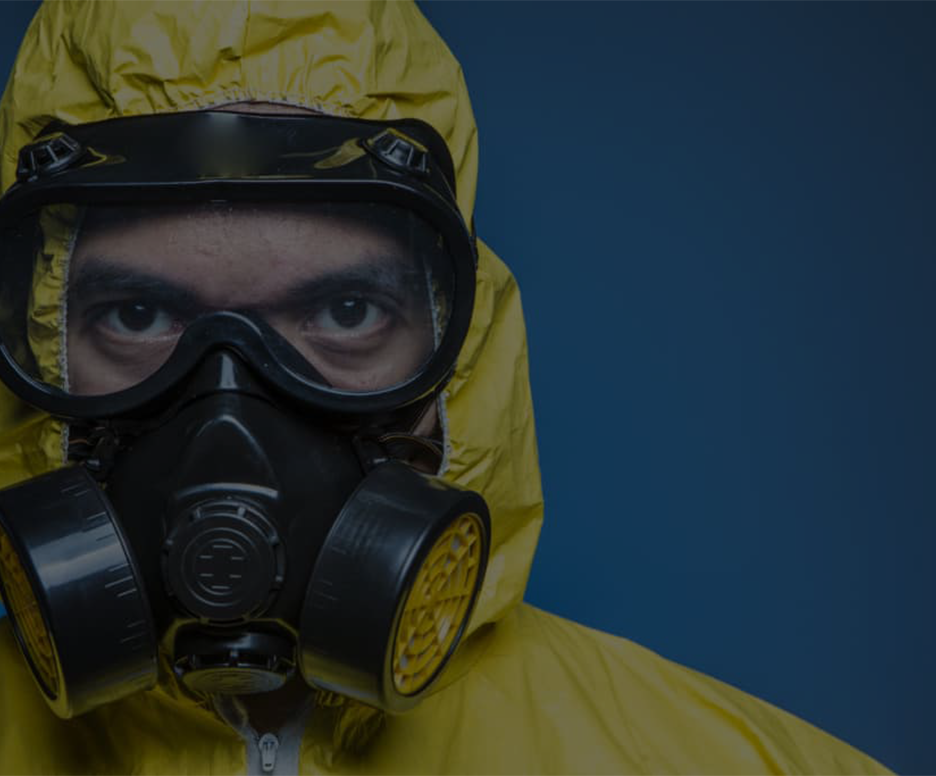
How To Remove Black Water From Your Basement
By: 911 Water Damage Experts
Dealing with black water in your basement is a serious and often overwhelming task. Black water, also known as Category 3 water, is highly contaminated and poses significant health risks. Whether it’s caused by sewage backups, flooding, or stormwater, black water requires immediate attention to prevent further damage to your home and protect your health.
In this guide, we’ll walk you through the steps to safely remove black water from your basement, explain the dangers associated with it, and offer tips for preventing future incidents.
Understanding Black Water Contamination
Black water is the most dangerous type of water contamination. Unlike clean water or grey water, black water contains harmful bacteria, viruses, and other pathogens that can cause serious illness. It often originates from sources like sewage backups, overflowing toilets, or floodwaters that have come into contact with contaminants.
The presence of chemicals, heavy metals, and toxic substances in black water makes it a severe health hazard. Prolonged exposure can also lead to significant structural damage to your home, including weakened foundations and damaged walls.
Immediate Steps To Take When You Discover Black Water In Your Basement
Safety should be your first priority when dealing with black water. Before entering the contaminated area, make sure you are wearing protective gear, including gloves, boots, and masks. This will help reduce your risk of coming into direct contact with the contaminated water.
It’s also crucial to shut off the electricity in the affected area to avoid electrical hazards, especially if the water level is high enough to reach outlets or electrical systems.
Once you’ve secured the area, assess the situation. If the water level is rising or if you’re unsure of the source, it may be best to evacuate the area and contact a professional immediately. Keep children and pets away from the contaminated area to prevent accidental exposure.
Document the damage by taking photos and videos, which will be important for insurance claims. If possible, try to identify the source of the black water, whether it’s a sewage backup, floodwater intrusion, or something else, as this will help in determining the best course of action.
Assessing The Extent Of The Damage
Once you’ve ensured your safety, it’s time to assess the extent of the damage. Identifying the source of the black water is crucial in determining how to proceed.
If the water is coming from a sewage backup, you’ll need to stop the flow if possible and contact a plumber. If it’s due to flooding, you’ll need to address any ongoing water intrusion. Understanding the source will help you plan the cleanup and prevent further contamination.
Next, evaluate how far the black water has spread. Check not only the floors but also the walls, furniture, and any other materials in the basement. Water can seep into porous materials like drywall, insulation, and wood, leading to long-term damage and mould growth. In some cases, you may also need to check for structural damage, such as weakened foundations or compromised support beams, which could indicate more severe issues.
Steps To Remove Black Water From Your Basement
The first step in removing black water from your basement is to pump out the water. Depending on the severity of the flooding, you may need to use a submersible pump or a trash pump, both of which are suitable for handling black water. Set up the pump according to the manufacturer’s instructions, ensuring that the hose leads the water to a safe disposal area, such as a sanitary sewer or a location approved by local regulations.
It’s important to note that disposing of black water improperly can lead to environmental contamination and legal penalties, so always follow local guidelines.
Once the water has been removed, the next step is to clean and sanitize the affected area. Start by removing any contaminated materials, such as carpets, drywall, insulation, and furniture. These materials may need to be disposed of if they’ve been saturated with black water.
For non-porous surfaces like concrete or tile, use a professional-grade cleaner and disinfectant to thoroughly clean the area. It’s essential to use EPA-approved disinfectants that are effective against bacteria, viruses, and mould spores to ensure the space is fully sanitized.
After cleaning, you’ll need to dry out the basement completely to prevent mould growth. Set up dehumidifiers and fans to promote airflow and reduce moisture levels. It’s important to monitor the moisture levels in the walls, floors, and air using tools like moisture meters.
Only consider the basement dry when moisture levels return to normal, which may take several days depending on the severity of the flooding.
Preventing Future Black Water Intrusions
Preventing future black water intrusions starts with regular maintenance and inspections. Ensure that your plumbing and sewage systems are in good working order, as blockages and failures are common causes of black water incidents. Regularly check your sump pump to ensure it’s functioning correctly, and consider installing a backup system in case of power outages or pump failure. Installing backwater valves can also help prevent sewage from backing up into your home during heavy rain or flooding.
Waterproofing your basement is another effective measure. This can include sealing cracks in the foundation, installing a drainage system, and using waterproof coatings on walls and floors. Additionally, having an emergency preparedness plan in place is crucial.
This should include having the contact information of a reliable water damage restoration service and a clear understanding of what steps to take in the event of black water intrusion.
When To Call A Professional
While it’s possible to handle small black water incidents on your own, there are times when professional help is necessary. If the water level is high, the contamination is severe, or the damage is extensive, it’s best to call a professional water damage restoration service.
Water damage companies have the expertise, equipment, and knowledge to safely remove black water, clean and sanitize the area, and restore your basement to its pre-damage condition. Attempting to handle large-scale black water cleanup on your own can be risky, as incomplete cleanup can lead to long-term health hazards and structural issues.
When hiring a professional, you can expect a thorough process that includes water extraction, cleaning, sanitization, and drying. Professionals also have access to advanced equipment like industrial-grade dehumidifiers, air movers, and moisture detection tools that ensure a comprehensive cleanup.
Additionally, they can help you navigate the insurance claim process, providing documentation and estimates that may be required by your insurance company.
Cost Considerations
The cost of black water removal can vary widely depending on the extent of the damage and the services required. Factors such as the size of the affected area, the level of contamination, and the materials involved all influence the overall cost.
On average, homeowners can expect to pay anywhere from $2,000 to $10,000 or more for black water removal and basement restoration. However, these costs can increase significantly if structural repairs are needed.
It’s important to check your homeowners insurance policy to see if black water damage is covered. Many policies cover water damage from sudden and accidental incidents, such as a burst pipe or sewage backup, but may not cover flood damage unless you have a specific flood insurance policy.
Filing an insurance claim can help offset the costs of cleanup and restoration, so be sure to document the damage thoroughly and provide all necessary information to your insurance company.
Conclusion
Addressing black water contamination in your basement is a critical task that requires immediate action and careful attention to detail. By following the steps outlined in this guide, you can safely remove black water, clean and sanitize the affected area, and take measures to prevent future incidents.
Remember that safety comes first, and don’t hesitate to call in professional help if the situation is beyond your capacity to handle.
If you’ve experienced black water contamination or want to ensure your basement is protected from future intrusions, consider contacting a professional water damage restoration service.
FAQs About Removing Black Water From Basements
What Is Black Water, And Why Is It Dangerous?
Black water is highly contaminated water that contains harmful bacteria, viruses, and toxins. It poses serious health risks and can cause significant damage to your home if not addressed promptly.
Can I Clean Up Black Water Myself, Or Do I Need A Professional?
Small black water incidents may be manageable on your own, but larger or more severe cases should be handled by professionals to ensure complete and safe cleanup.
How Long Does It Take To Dry Out A Basement After Black Water Removal?
Drying out a basement can take several days, depending on the extent of the flooding and the effectiveness of the drying equipment used.
What Cleaning Products Should I Use To Disinfect My Basement?
Use EPA-approved disinfectants that are effective against bacteria, viruses, and mould spores. These products ensure thorough sanitization of the affected area.
How Can I Prevent Future Sewage Backups In My Basement?
Regular maintenance of your plumbing and sewage systems, installing backwater valves, and waterproofing your basement can help prevent future sewage backups.
Is Black Water Removal Covered By Homeowners Insurance?
It depends on your policy. Many insurance policies cover water damage from sudden and accidental incidents, but flood damage may require specific flood insurance.
What Should I Do If I Find Mould After Removing Black Water?
If you discover mould, it’s essential to address it immediately. Depending on the severity, you may need to consult a professional mould remediation service.
How Do I Safely Dispose Of Items Contaminated By Black Water?
Contaminated items should be disposed of according to local regulations. Non-porous items may be salvageable after thorough cleaning and disinfection.
What Are The Signs Of Structural Damage After A Black Water Flood?
Signs include cracks in the foundation, warped floors, and compromised support beams. If you notice any of these, it’s important to consult a professional for an assessment.
If you have any questions about our article, “How To Remove Black Water From Your Basement” or need water damage services, feel free to call us at 1-833-WE-DRY-IT or chat with us on social media or LiveChat!
Related Posts
Fire Damage Restoration Articles
The Dos And Don’ts Of Commercial Fire Damage
Forest Fire House Damage: What To Do After Your House Is Damaged By A Forest Fire And Who to Call?
Fire prevention tips for the summer
How to clean up after a house fire
Fire damage restoration checklist
Fire damage tips: 6 hazards property owners miss
How smoke from fires can negatively affect your health
What are the most common causes of house fires?
10 helpful smoke damage cleaning tips
Mould Removal Restoration Articles
Is Bathroom Mould Dangerous? Powerful Mould Prevention Tips Inside
Dangers Of Bathroom Mould And Tips On How To Clean And Prevent It
Got Bathroom Mould? Here Are Some Must-Know Bathroom Mould Cleaning Tips
5 Signs You Have Mould Growing In Your Walls
“Can I Remove Mould Myself?” Our Mould Removal Experts Have Answers
7 Must-Know Reasons Why You Should Get A Mould Inspection Before Buying A House
Does Mould Attract Bugs? Yes And Here’s What Kind And Why
How To Remove Mould From The Attic [Mould Prevention Tips Inside]
How Rain Causes Mould Growth-Prevention Tips Included
Must-Know Tips: How To Remove Mould In Your Basement
Water Damage Restoration Articles
How to prevent home storm damage
What you can expect from a fire damage restoration company
Water damage prevention tips from the most common problems we’ve seen
Top causes of water damage in commercial buildings and how to find them
Must-know water damage tips: What to do after your house floods
What does good water damage restoration look like?
DIY water damage restoration and the hidden dangers
How to choose the right water damage company
Flast floods: What to do before, during and after a flash flood
What to do when your attic leaks?
This is why water damage is a silent home killer
Related Water Damage Services
Fire damage restoration services
Water damage restoration services
Emergency cleanup services
Mould removal services
Weather damage services


